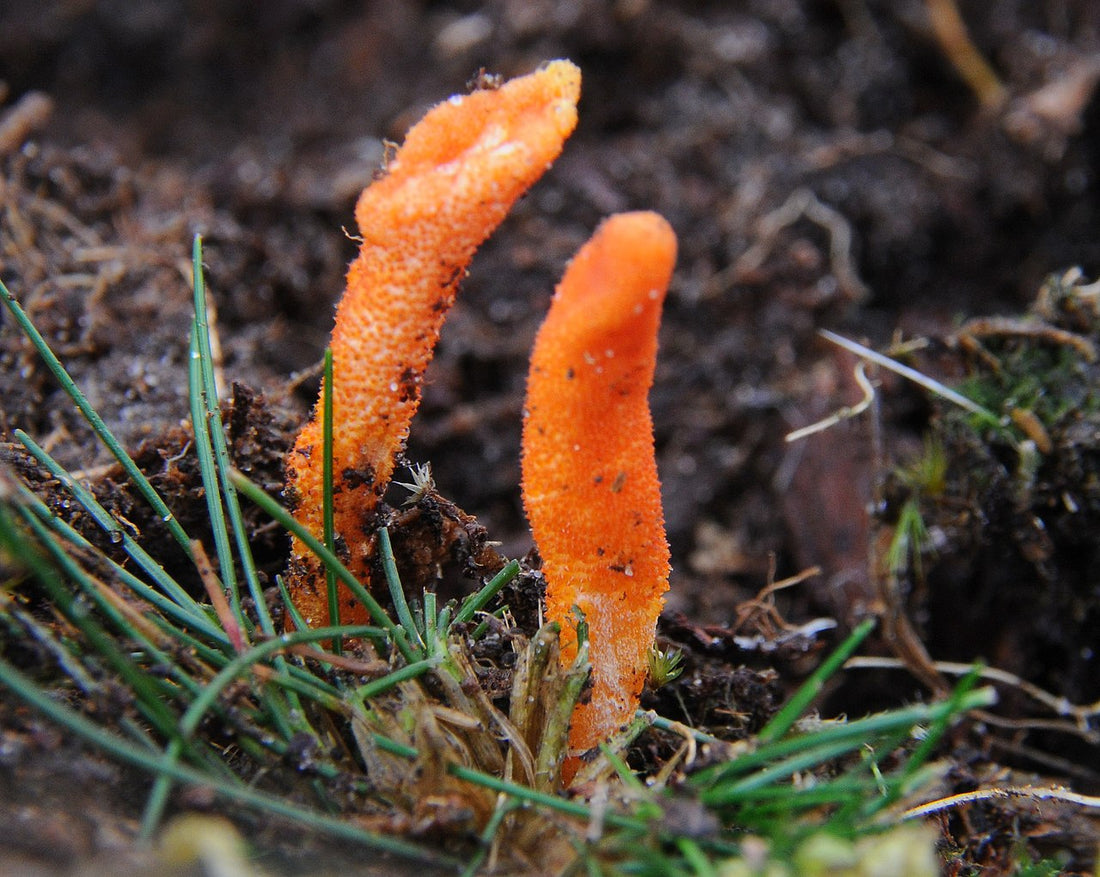
Mindful Mushrooms: Debunking Myths - Are Cordyceps Psychoactive?
Share
Mindful Mushrooms: Debunking Myths - Are Cordyceps Psychoactive?
Cordyceps, known for its intriguing biology and potential health benefits, has sparked curiosity about its effects on the mind. In this exploration, we delve into the question: Are Cordyceps psychoactive? Let's sift through the science and separate reality from myth.
1. The Science Behind Cordyceps: Fungi with a Purpose
Cordyceps belong to a family of fungi celebrated for their adaptogenic and immunomodulatory properties. Unlike psychoactive mushrooms, such as Psilocybe, Cordyceps are not known for containing compounds like psilocybin that induce altered states of consciousness.
2. Lack of Psychoactive Compounds: Setting the Record Straight
Cordyceps primarily contain bioactive compounds like polysaccharides, cordycepin, and adenosine, which are associated with health benefits. These compounds lack the psychoactive properties found in mushrooms known for their mind-altering effects.
3. Historical Use in Traditional Medicine: Wellness, Not Altered States
Throughout history, Cordyceps have been utilized in traditional medicine, particularly in Asian cultures. Their use has been centered around supporting overall health, vitality, and adaptability rather than inducing psychoactive experiences.
4. No Hallucinogenic Effects: Dispelling Misconceptions
Contrary to mushrooms with hallucinogenic properties, Cordyceps do not induce hallucinations or alter perception. The effects of Cordyceps are more aligned with promoting physical well-being and adaptability rather than influencing cognitive functions.
5. Adaptogenic Qualities: Balancing the Body, Not the Mind
Cordyceps' adaptogenic qualities are linked to their ability to help the body adapt to stressors. This adaptability is primarily physical, aiding in energy metabolism and immune function, rather than affecting cognitive processes.
6. Safety and Regulation: Cordyceps as a Nutritional Supplement
Cordyceps are commonly consumed as nutritional supplements or functional foods. They are regulated for safety, and products from reputable sources undergo testing to ensure purity and adherence to quality standards.
7. Individual Responses: Variability in Experience
While Cordyceps are not psychoactive, individual responses to any supplement can vary. Some people may experience a sense of increased vitality or focus, but this is distinct from the hallucinogenic effects associated with psychoactive compounds.
Cordyceps - A Mindful Addition to Wellness
In conclusion, Cordyceps are not psychoactive mushrooms. Their benefits lie in supporting physical well-being, adaptability, and immune function. As a mindful addition to your wellness routine, Cordyceps contribute to a holistic approach to health without inducing altered states of consciousness.
Cordyceps, known for its intriguing biology and potential health benefits, has sparked curiosity about its effects on the mind. In this exploration, we delve into the question: Are Cordyceps psychoactive? Let's sift through the science and separate reality from myth.
1. The Science Behind Cordyceps: Fungi with a Purpose
Cordyceps belong to a family of fungi celebrated for their adaptogenic and immunomodulatory properties. Unlike psychoactive mushrooms, such as Psilocybe, Cordyceps are not known for containing compounds like psilocybin that induce altered states of consciousness.
2. Lack of Psychoactive Compounds: Setting the Record Straight
Cordyceps primarily contain bioactive compounds like polysaccharides, cordycepin, and adenosine, which are associated with health benefits. These compounds lack the psychoactive properties found in mushrooms known for their mind-altering effects.
3. Historical Use in Traditional Medicine: Wellness, Not Altered States
Throughout history, Cordyceps have been utilized in traditional medicine, particularly in Asian cultures. Their use has been centered around supporting overall health, vitality, and adaptability rather than inducing psychoactive experiences.
4. No Hallucinogenic Effects: Dispelling Misconceptions
Contrary to mushrooms with hallucinogenic properties, Cordyceps do not induce hallucinations or alter perception. The effects of Cordyceps are more aligned with promoting physical well-being and adaptability rather than influencing cognitive functions.
5. Adaptogenic Qualities: Balancing the Body, Not the Mind
Cordyceps' adaptogenic qualities are linked to their ability to help the body adapt to stressors. This adaptability is primarily physical, aiding in energy metabolism and immune function, rather than affecting cognitive processes.
6. Safety and Regulation: Cordyceps as a Nutritional Supplement
Cordyceps are commonly consumed as nutritional supplements or functional foods. They are regulated for safety, and products from reputable sources undergo testing to ensure purity and adherence to quality standards.
7. Individual Responses: Variability in Experience
While Cordyceps are not psychoactive, individual responses to any supplement can vary. Some people may experience a sense of increased vitality or focus, but this is distinct from the hallucinogenic effects associated with psychoactive compounds.
Cordyceps - A Mindful Addition to Wellness
In conclusion, Cordyceps are not psychoactive mushrooms. Their benefits lie in supporting physical well-being, adaptability, and immune function. As a mindful addition to your wellness routine, Cordyceps contribute to a holistic approach to health without inducing altered states of consciousness.
